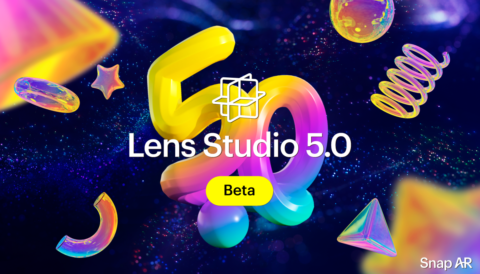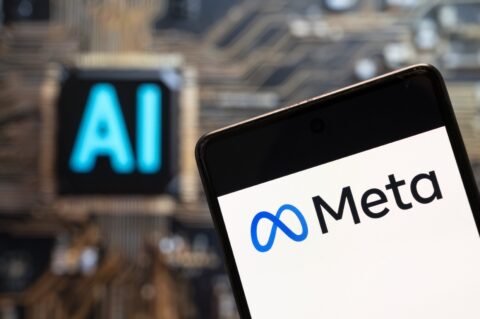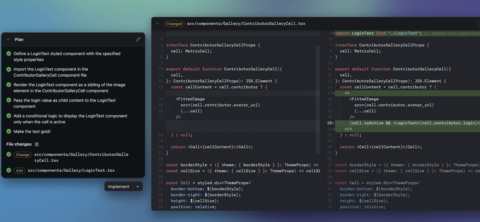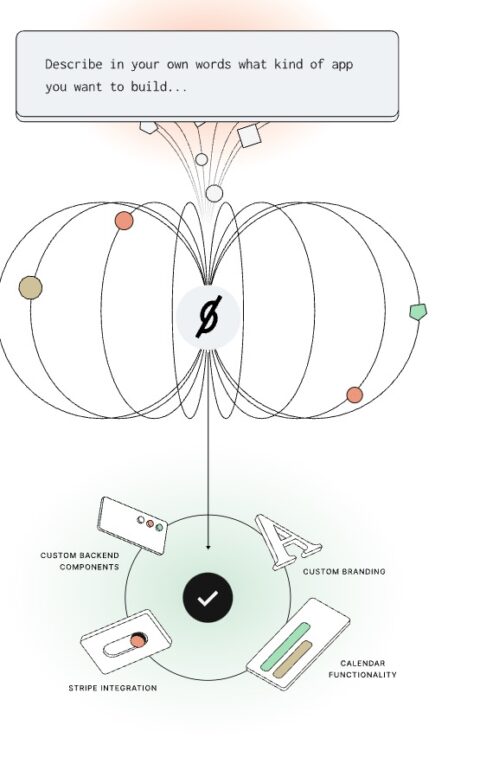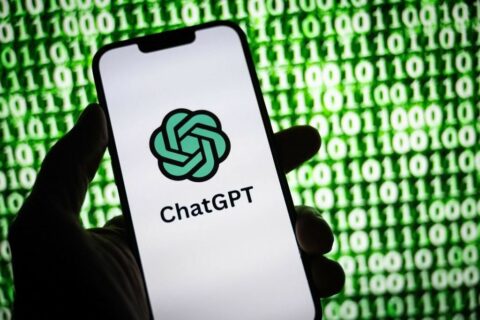It’s an open secret that the data sets used to train AI models are deeply flawed. Image corpora tends to be U.S.- and Western-centric, partly because Western images […]
Snap’s latest version of its AR development tool includes a ChatGPT API, boosted productivity and more
Snap is releasing a new version of its AR development tool, called the Lens Studio 5.0 Beta, to developers starting today. The new AR development tool is designed […]
Major ChatGPT outage due to DDoS attack
After a major ChatGPT outage on Wednesday, OpenAI confirmed it was due to a DDoS attack.

A cyberattack is to blame for recent ChatGPT outages.
OpenAI confirmed this Wednesday on its status monitoring site saying, the outages are “due to an abnormal traffic pattern reflective of a DDoS attack.” DDoS stands for “distributed denial-of-service.” The acute issue has been resolve, but the OpenAI’s API and ChatGPT are still experiencing “degraded performance,” and the company is continuing to work on it.
ChatGPT users started noticing issues on Tuesday. ChatGPT Plus subscribers, who had just received the updated version powered by GPT-4 Turbo that integrates DALL-E 3 and internet browsing, started noticing issues with the chatbot failing to generate images and getting error messages. By Wednesday, ChatGPT and the API were fully down for hours. According to OpenAI status page, the issue has been resolved. However, users are still experiencing problems. Down Detector (which shares the same parent company as Mashable) is still showing reports, although much less so than the past few days.
OpenAI CEO Sam Altman initially attributed the outage to an explosion of traffic following its developer conference which unveiled GPT-4 Turbo and other new features. At 1:08 p.m. ET, Altman posted on X, “usage of our new features from devday is far outpacing our expectations.”
However, at 10:49 p.m. ET, OpenAI confirmed a DDoS attack in an incident report update. A DDoS attack is a type of cyberattack that floods a system with requests, which slows or crashes the network.
According to the Cybersecurity and Infrastructure Security Agency (CISA), the impact of a DDoS attack “could be severe and include loss or degradation of critical services, loss of productivity, extensive remediation costs, and acute reputational damage.” In other words it’s costly both financially and in terms of public trust.
Political ads on Facebook, Instagram required to disclose use of AI
Meta has introduced a set of AI rules for political advertisers on Facebook and Instagram.

OpenAI just announced its latest large language model (LLM), GPT-4 Turbo. Elon Musk’s xAI recently unveiled its own AI chatbot, Grok. And Samsung is jumping on the bandwagon, too, with its LLM, Gauss. On top of all this, AI-powered video and image generators are continuing to evolve. With artificial intelligence creating more and more content on the web, some social media platforms want users to know when media is created or altered by AI.
The latest company to step in with a set of policies around AI-created content is Meta, the parent company of Facebook and Instagram. And its new set of rules sets a standard on its platforms, specifically for political advertisers.
In a blog post on Wednesday, Meta stated it has a new policy that will force political advertisers to disclose when a Facebook or Instagram ad has been “digitally created or altered, including through the use of AI.” This includes “any photorealistic image or video, or realistic sounding audio, that was digitally created or altered.” The policy will pertain to all social issues, electoral, or political advertisements.
According to Meta’s new policy, a disclosure on an ad will be required when the advert depicts a real, existing person “saying or doing something they did not say or do.” Furthermore, if an ad contains a fictional yet realistic-looking person, it too must include a disclosure. The same goes for any political ad that uses manufactured footage of a realistic event or manipulates footage of a real event that happened.
There are some uses of AI or digital manipulation that will not require disclosures, Meta says. But these are only for uses that are “inconsequential or immaterial to the claim, assertion, or issue raised in the ad.” Meta provides examples of these exceptions, such as image size adjusting, cropping an image, color correction, and image sharpening. The company also reiterates that any digital manipulation utilizing any of those examples that does change the claims or issues in the ad would need to be disclosed.
And, of course, these AI-created or altered ads are all still subject to Facebook and Instagram’s rules around deceptive or dangerous content. The company’s fact-checking partners can still rate these ads for misinformation or deceptive content.
AI will be a more prominent factor in next year’s coming elections, such as the 2024 U.S. Presidential election, than it ever has been before. Even Meta now has its own large language model as well as an AI chatbot product. As these technologies continue to evolve, readers can be sure more online companies are going to produce a set of corporate or platform standards. With those elections on the horizon, Meta seems to be setting the ground rules for political ads now.
Meta’s new AI policy will roll out officially in 2024 and will pertain to advertisers around the globe.
Fakespot Chat, Mozilla’s first LLM, lets online shoppers research products via an AI chatbot
Earlier this year, Mozilla acquired Fakespot, a startup that leverages AI and machine learning to identify fake and deceptive product reviews. Now, Mozilla is launching its first LLM […]
GitHub teases Copilot enterprise plan that lets companies customize for their codebase
GitHub today announced plans for an enterprise subscription tier that will allow companies to fine-tune its Copilot pair-programmer based on their internal codebase. The news constituted part of […]
Sutro introduces AI-powered app creation with no coding required
AI is already transforming the way we search, gather information, create, code, decipher data, and more, and now it may democratize the process of building an app, too. […]
ChatGPT is down. What we know about the major outage.
After announcing updates to ChatGPT earlier this week, OpenAI’s chatbot is down. Here’s what we know so far.

ChatGPT is down for subscribers and free users.
According to OpenAI’s status monitoring site and Down Detector (which shares the same parent company as Mashable) both reported major outages. As of 6:02 a.m. PT/9:02 a.m. ET, OpenAI says it is aware of the issue and continuing to investigate it.
Yesterday afternoon, Mashable reported issues with ChatGPT’s ability to generate DALL-E 3 images, although it’s unclear if this is a related issue. At the time a spokesperson for OpenAI said all systems are full operational on their end. Earlier this week, OpenAI announced updates to ChatGPT at its very first developer conference. This included integrating DALL-E 3 with ChatGPT, updating its knowledge cutoff date to April 2023, and deploying GPT-4 Turbo to ChatGPT Plus users.
This story is developing…

